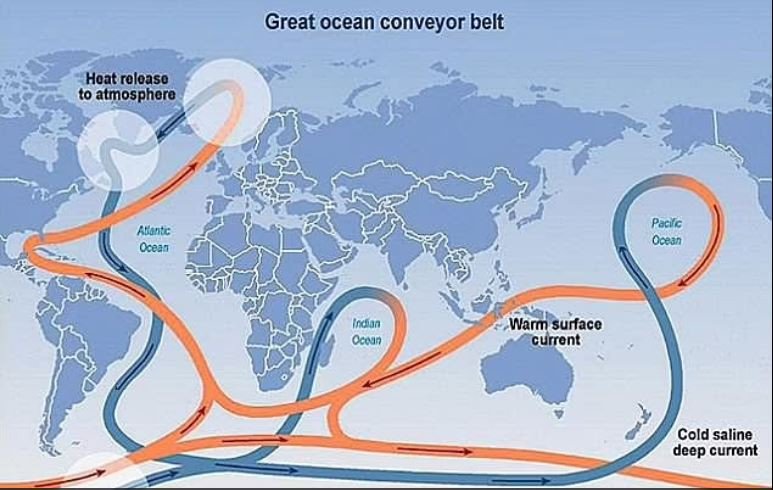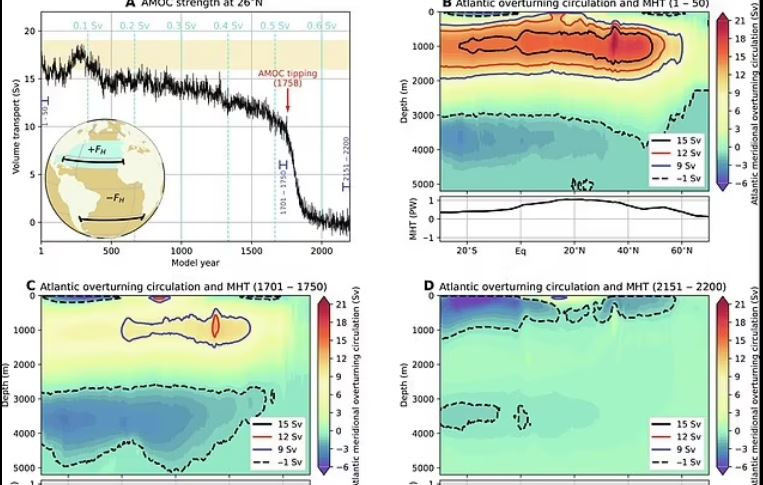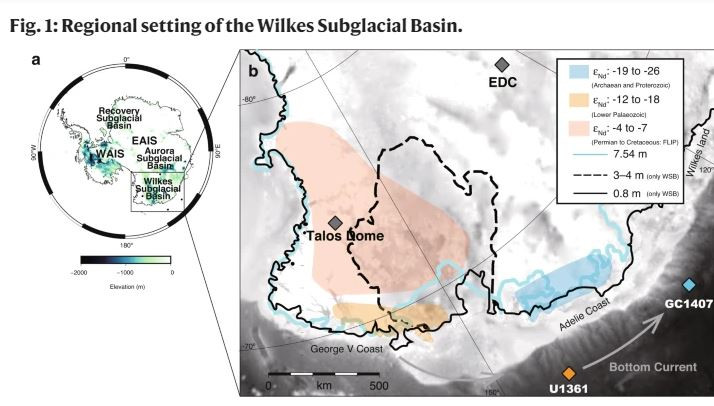Scientists warn that an abrupt cessation of Atlantic Ocean currents looks more likely than ever
Scientists are sounding the alarm that in a few years, melting glaciers could lead to the collapse of the Gulf Stream, a strong, warm and fast current of the Atlantic Ocean that forms in the Gulf of Mexico.
Without this additional heat source, average temperatures could drop by several degrees in North America, parts of Asia, and Europe, and people would face severe consequences around the world.
Scientists warn that an abrupt disruption of Atlantic Ocean currents seems more likely than everas computer simulations find a tipping point set in the near future.
The study’s authors, from the University of Utrecht in the Netherlands, do not know exactly when the collapse will occur, although a previous study puts next year as the time frame.
“We’re moving closer to collapse, but we’re not sure how much closer,” said lead author Rene van Westen, a climate scientist and oceanographer at Utrecht University.
“We’re headed for a tipping point.”
The Gulf Stream is part of a much larger current system, officially called the Atlantic Meridional Overturning Circulation, or AMOC.
Described as “the ocean’s conveyor belt,” it transports warm near-surface ocean water northward from the tropics to the northern hemisphere.
When the warm water reaches the North Atlantic, around Europe and the UK and the US East Coast, it releases heat and freezes. As this ice forms, salt is left behind in the ocean water.
Due to the large amount of salt, the water becomes denser, sinks and is transported southward to the lower depths. Eventually, the water is drawn back to the surface and heated in a process called upwelling, completing the cycle.
Scientists believe the AMOC brings enough warmth to the Northern Hemisphere that without it, large parts of Europe could go into a deep freeze.
Previous studies have already shown that due to climate change, the AMOC is slowing down.
The engine of this current is off the coast of Greenland, where as more ice melts due to climate change, more fresh water flows into the North Atlantic and slows everything down.
The new study predicts that an abrupt shutdown of the AMOC could still happen in the next few decades, instead of the next few centuries as previously thought.
The researchers designed a computer simulation in which they were able to measure a sudden weakening of the ocean circulation. The simulation introduced fresh water into the Atlantic Ocean and as a result, the strength of the circulation gradually decreased until it reached a critical “tipping point” and collapsed.
According to the results, the European climate will cool by about 1°C per decade, and in some areas it will reach more than 3°C per decade, much faster than the current global warming of about 0.2C per decade.
Other scientists say it would be a disaster that could cause global food and water shortages.
“We found that once it reaches the tipping point, the Gulf Stream will collapse completely within 100 years,” the authors said.
“Heat transport to the north is greatly reduced, leading to abrupt climate changes.”
The only thing they haven’t been able to pinpoint is when exactly we’ll reach that tipping point, though it’s at least decades away, if not longer.
Source: Skai
I have worked as a journalist for over 10 years, and my work has been featured on many different news websites. I am also an author, and my work has been published in several books. I specialize in opinion writing, and I often write about current events and controversial topics. I am a very well-rounded writer, and I have a lot of experience in different areas of journalism. I am a very hard worker, and I am always willing to put in the extra effort to get the job done.













